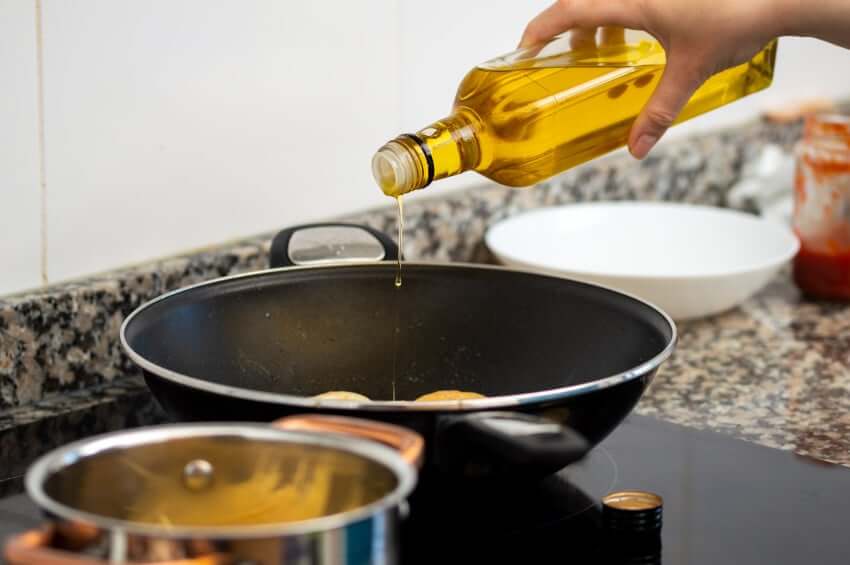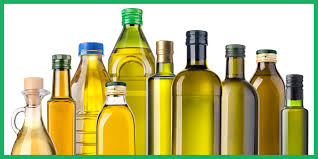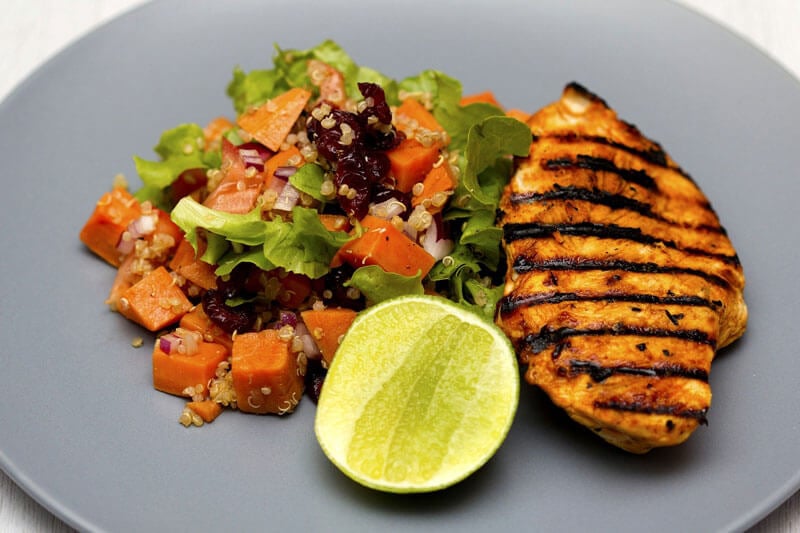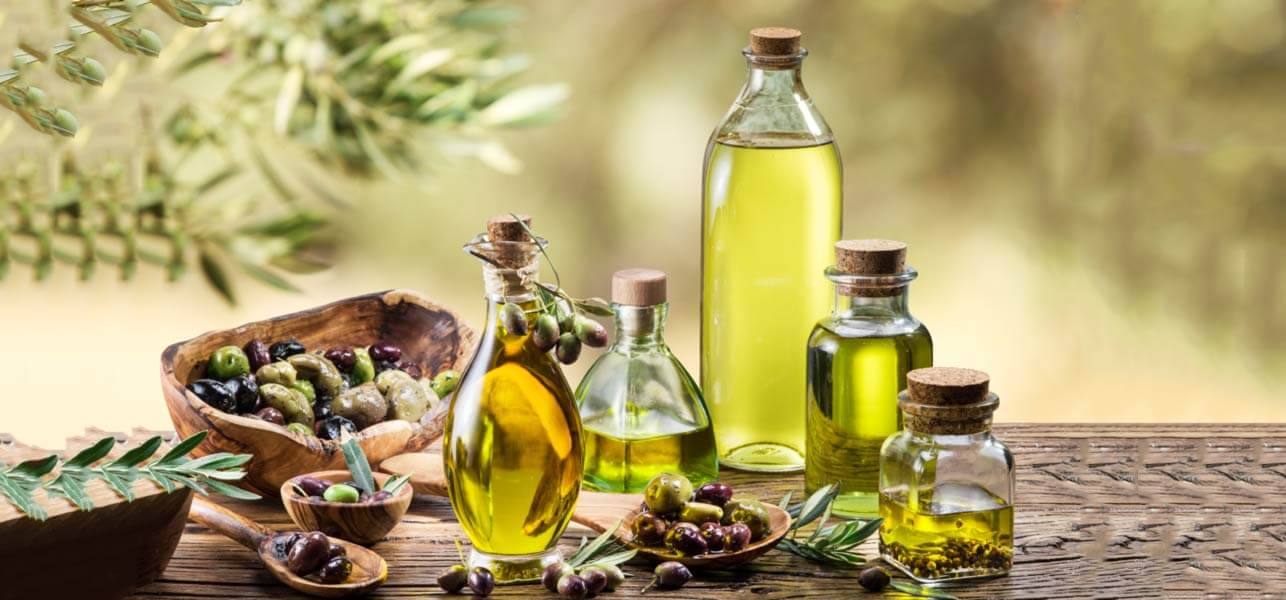Our Blog

Olive Oil vs Other Oils: Best for Cooking, Healthiest & More
There are so many oils on the market today, it is difficult to understand all of the selections, especially when searching for just the right "oil" for cooking. Whether it is olive oil vs other oils for cooking, smoke points are just one consideration. It is also important to evaluate additional factors of olive oil vs other oils for health considerations (fats, vitamins, antioxidants), recipe impacts, costs, tastes, stability and even environmental impacts.
In addition to understanding the considerations above, in this blog The Olive Tap also explores the various myths and FAQs around cooking oils. So for you home chefs looking to understand “which cooking oil is the healthiest", olive oil vs other oils, our convenient Nutritional Comparison Chart will compare olive oil vs other oils including, coconut, avocado, canola, sunflower, vegetable and more.
Nutritional Breakdown: Olive Oil vs Other Oils
 Just the "Fats"
Just the "Fats"
Here is a quick nutritional comparison of olive oil vs other oils including butter. Certainly, there are more oils available for comparison, however, from this chart it clearly demonstrates not all fats are the same despite having similar calories counts and total fat levels. So, let's review a few key facts on fats.
A Quick Fat Reminder:
Saturated Fat - AKA "Bad Fat" Fats found in animal-based foods like meat and dairy and these fats can raise cholesterol levels.
Unsaturated Fats (Monunsaturated Fats - MUFAs and Polyunsaturated Fats - PUFAs) - AKA "Good Fat": Fats primarily found in plants and fatty fish. Both MUFAs and PUFAs may help lower the risks of heart disease by improving cholesterol levels.
Note: Fat grams rounded slightly for ease of comparison.
Olive Oil vs Other Oil Fat Comparison Chart
| Oil (1T) | Calories | Total Fat | Saturated Fat | Monounsaturated Fat (MUFAs) | Polyunsaturated Fat (PUFAs) |
| Olive Oil (EVOO) | 120 | 14g | 2g | 10.5g | 1.5g |
| Coconut Oil | 125 | 14g | 12g | <1g | <.25g |
| Avocado Oil | 120 | 14g | 2g | 10g | 2g |
| Sesame Oil | 120 | 14g | 2g | 6g | 6g |
| Canola Oil | 126 | 14g | <1g | 8.75g | 3.5g |
| Sunflower Oil | 120 | 14g | 1g | 3g | 9g |
| Vegetable Oil | 124 | 14g | 2g | 3g | 8g |
| Butter | 102 | 11.5g | 7.3g | 3g | .4g |
As demonstrated above, Olive Oil (Extra Virgin Olive Oil - EVOO) is highest in monounsaturated fats and also contains Polyunsaturated Fats, resulting in a more favorable fatty acids. MUFAs and PUFAs have been proven to lower cholesterol, improve cells development and reduce disease risk. Olive Oil's health benefits go well beyond the fats.
Beyond the "Fats"
The benefits of Extra Virgin Olive Oil are more than just the type of fat content, it also:
- Is high in Vitamin E (protects cells) and in Vitamin K (fat soluble vitamin).
- Contains Antioxidants (oleocanthal and oleuropein) to help fight inflammation and chronic disease.
- Contains Polyphenols (the higher the better) which helps reduce risk of cardiovascular disease and cancer.
The Olive Tap has a library of articles on our blog which also may be of interest on the many health benefits of olive oil.
Benefits of Extra Virgin Olive Oil to Support Your Wellness
Live Longer and Healthier with Extra Virgin Olive OIls
Reducing the Risk of Alzheimers Disease with EVOO
Health Benefits: Olive Oil vs Other Oils
Heart Health
As proven in many studies, Olive Oil not only improves HDL (good cholesterol) but it also helps decrease LDL (bad cholesterol). See a recent article Can Olive Oil Lower Cholesterol
Olive Oil overall offers more robust health benefits when compared to Coconut Oil. Quality EVOO is richer in heart-healthy monounsaturated fats and contains more beneficial Antioxidants and Vitamin E. While Coconut Oil has some health benefits such as medium-chain triglycerides (MCTs) and potential antimicrobial properties, its high saturated fat content does raises concerns about cholesterol levels. See a recent article Olive Oil vs. Coconut Oil: Which is Better?
Both Olive Oil and Canola Oil are heart-healthy oil choices, but they do differ in their fatty acid composition and other properties. Olive Oil, especially EVOO, is richer in monounsaturated fats, which are beneficial for heart health and the oil also contains antioxidants. Canola Oil, on the other hand, has a higher proportion of polyunsaturated fats, including omega-3 and omega-6, and a higher smoke point, making it more suitable for higher heat cooking. See a recent article Olive Oil vs. Canola Oil: Which is Healthier?
Brain Health
In a May 2024 Study from Harvard's School of Public Health, "the study found that, regardless of genetic predisposition and overall diet quality, participants who consumed at least 7 grams of olive oil per day had a 28% lower risk of dementia-related death compared to participants who never or rarely consumed olive oil." See the study Olive Oil may Reduce Risk of Death from Dementia.
Olive Oil, particularly Extra Virgin Olive Oil (EVOO), is generally considered to have more neuroprotective properties* than many other Vegetable Oils, particularly the oils which are highly refined. This is due to the presence of polyphenols, potent antioxidants, and oleocanthal, a compound with anti-inflammatory effects, which are found in Olive Oil. Many Vegetable Oils, especially refined ones, undergo processing that removes these beneficial compounds.
*Note: A neuroprotective property refers to the ability of a substance or process to protect neurons and maintain brain function, particularly in the face of injury or disease.
Anti-Inflammatory Effects
When it comes to inflammation, Omega-3 and Omega-6 fatty acids are essential fats that play crucial roles in overall health. Omega-3s, particularly EPA and DHA, are known for their anti-inflammatory properties and benefits for heart, brain, and eye health.
Olive Oil, Corn Oil, and Soybean Oil differ significantly in their omega-3 and omega-6 fatty acid content, as well as other nutritional properties. Olive Oil is primarily high in monounsaturated fats, especially oleic acid, and contains smaller amounts of omega-3 and omega-6. Corn and Soybean Oils, on the other hand, are rich in polyunsaturated fats, particularly omega-6 fatty acids. Corn Oil is essentially free of omega-3, while soybean oil contains alpha-linolenic acid, an omega-3 fatty acid.
The bottom line, for managing inflammation, Olive Oil is generally considered a better choice than Corn or Soybean Oil. Olive Oil, particularly Extra Virgin Olive Oil, is rich in monounsaturated fats and antioxidants, including oleocanthal, which has anti-inflammatory properties.
Cooking Safety: Smoke Points and Stability
A smoke point of cooking oil is the temperature at which it starts to break down and visibly smoke, releasing a strong and not flavorful burnt taste. Oils, regardless of the type, should not be heated beyond their smoke point as it will degrade not only the quality (flavor and health benefits) but may also create harmful compounds.
Below are approximations of smoke points as the smoke points can vary depending upon the quality of the oil and also if it is a refined or unrefined oil. In addition, there is significant variability in data on smoke points, this is probably due to comparisons of refined vs. unrefined oils (or lacking the statement if it is refined or unrefined). It can be confusing and overwhelming!
To help navigation through the confusion, the chart below is for unrefined oils only. In general, refined oils have higher smoke points, and can be a good choice for cooking at higher temperatures, however, you often lose the taste and health benefits.
Tap's Tip: Understand if you are purchasing or using a refined or unrefined oil for cooking.The Olive Tap's EVOOs, Flavored Oils, Avocado Oil and Roasted Sesame Oil are all unrefined oils.
Unrefined Oils Smoke Points
| Oil | Temperature |
| Olive Oil (EVOO) | 325-400° F |
| Coconut Oil | 350-375° F |
| Avocado Oil | 350-400° F |
| Sesame Oil | 350-410° F |
| Canola Oil | 400-475° F |
| Sunflower Oil | 412-450° F |
| Vegetable Oil | 400-450° F |
| Butter | 280-350° F |
Early Indicators...Before Hitting the Smoke Point!
Due to not only the variability of the data (online) and understanding if you have a refined or unrefined oil, it is important to watch for the early indicators before the oil hits the smoke point. In addition, it is also challenging to determine the exact temperatures when cooking on the stove or grill, so watch for these early indicators, when appropriate, of an oil before it hits the smoke point.
- Watch for a noticeable shimmering effect on the oils surface.
- There will be a thinning of the oil and the oil will become more easily pourable with more movement around the pan.
- It is important to reduce the heating of the oil before it shows visible smoke.
Oxidation Stability - Olive Oil vs Other Oils
Beyond understanding the smoke points of the various oils, the stability of the oil will depend upon the level of polyunsaturated fats. Polyunsaturated fats have a distinct chemical structure (double bonds) which create kinks in the fatty acid chain, making them more reactive to oxidative damage. As a result, Olive Oil is less at risk of oxidation when compared to both Sunflower Oil and Vegetable Oil.
Olive Oil vs Other Oils: Environmental and Ethical Impact
Extra Virgin Olive Oil stands out from the crowd of other oils for its sustainability compared to common cooking oils, including those like Sunflower, Canola, and Avocado Oil. Olive trees are "carbon sinks", meaning they absorb more CO2 than they release, and are resilient to climate change, requiring less water than other oils like sunflower.
While other oils like Sunflower have lower water consumption, Olive Oil production also has a lower environmental impact than conventional oils, including lower water use and greenhouse gas emissions. Additionally, Olive Oil production often involves traditional, low-impact farming practices.
Cost and Accessibility: Is Olive Oil Worth the Price
Extra Virgin Olive Oil (EVOO), quality Avocado Oil and Sesame Oil generally cost more than other common cooking oils like refined Vegetable Oil, Safflower Oil, or Sunflower Oil. The price difference is influenced by factors like production methods, harvest timing, and market conditions. For example, high-quality EVOO and other Nut or Seed Oils can range from $10 to $50 per liter, while other oils (refined or unrefined) can be purchased for a few dollars per liter.
Tap's Tip: When shopping, it is important to consider the following factors to determine if Olive Oil vs Other Oils should be purchased.
- How will the oil be used?
- What are the recipe and taste considerations for the oil?
- How much oil is needed for your typical household culinary applications?
- What are the oil health benefits of most interest?
- What are the budget considerations?
Taste and Culinary Uses: Which Oil Works Best?
Flavor profiles do vary across the many cooking oils available, again these refer to unrefined oils. Here's a few taste and usage tips on Olive Oil vs Other Oils.
Olive Oil: At The Olive Tap, the EVOO taste profiles can vary from Mild and Buttery, Medium Bodied and Fruity (Olive Fruit) or Robust and Peppery. It is important to vary your selection of EVOOs based on the recipe and cooking applications. Olive Oil is excellent for salads, marinades, baking and lower heat cooking.
Coconut Oil: Similar to a coconut, Coconut Oil it exhibits a sweet, slightly nutty and often tropical flavor. Coconut Oil is also good for cooking, baking and culinary applications with a tropical flair.
Avocado Oil: Very neutral in taste (does not taste like avocados), Avocado Oil is an excellent general purpose oil and it also excellent for baking. Refined Avocado Oil has a significantly higher smoke point (480-520 ) so it can be a good option for high-heat frying.
Sesame Oil: Exhibits a distinct nutty and slightly sweet flavor, especially if it is a toasted or roasted Sesame Oil. Due to it's distinctive flavor, it will add unmistakeable depth to dishes, especially for Asian recipes. Perfect for sauteed vegetables, as a marinade, with rice dishes and more.
Debunking Myths About Cooking Oils
Myth 1: “You can’t cook with olive oil.”
Fact 1: It is a common misconception that you should not cook with Olive Oil, especially Extra Virgin Olive Oil. While it's true Olive Oil has a lower smoke point compared to some other oils, it is safe and healthy to use for cooking. Many chefs and experts recommend using olive oil for various cooking methods, including frying. Be sure to check out a few of The Olive Tap's Recipes to see the many usage applications.
Myth 2: “All saturated fats (like coconut oil) are unhealthy.”
Fact 2: While saturated fats, including those in Coconut Oil, can raise cholesterol levels, not all saturated fats are created equal. Coconut oil, particularly, contains medium-chain saturated fats, which may have a more favorable impact on blood lipid profiles compared to longer-chain saturated fats found in animal products (butter).
Myth 3: “Seed oils like canola are always bad.”
Fact 3: No, this myth is false! Seed Oils like Canola Oil are not always bad and can even be part of a healthy diet. While some concerns exist about the processing and high omega-6 fatty acid content in some Seed Oils, they are not inherently unhealthy. Many health authorities, like the American Heart Association, Harvard T.H. Chan School of Public Health, and Mayo Clinic, don't recommend avoiding Seed Oils and point to potential health benefits.
FAQs About Cooking Oils
At The Olive Tap, we often hear and answer the following questions on Olive Oil vs Other Oils:
“Is Olive Oil better than Coconut Oil for Weight Loss?”
While both Olive Oil and Coconut Oil offer health benefits, Olive Oil may be slightly better for weight loss than Coconut Oil due to its lower saturated fat content and higher monounsaturated fat content. As with any fat, both oils should be consumed in moderation as part of a balanced diet.
“Can I Reuse Olive Oil after Frying?”
Yes, you can reuse olive oil! In fact, researchers conducted a study where food was fried in Olive Oil and found that Olive Oil was stable even when reused 10 times. They concluded that for frying foods, Olive Oil maintains quality and nutrition better than Seed Oils. Here are some Tips for Reusing Frying Oil from the North American Olive Oil Association.
“What’s the Healthiest Oil for Deep Frying?”
Here are a few facts we found from a Recent Article on Healthline on a on deep frying...
- Oils that consist mostly of saturated and monounsaturated fats are best for deep frying because they’re the most stable at high heat.
- Olive Oil and Avocado Oil are good choices for deep frying.
- Coconut Oil is high in saturated fats, which means it’s stable and doesn’t appear to change quality during deep frying.
So Olive Oil vs Other Oils for Cooking
As you have learned throughout this blog, Olive Oil is a versatile, healthy oil for cooking along with many other culinary usage applications. The health benefits of Olive Oil vs Other Oils are simply unparalleled and quality, unrefined Olive Oil should be considered a strong go-to oil in your kitchen.
Of course, there are usage benefits and applications for many of the other oils which are also strong in both monounsaturated fats and polyunsaturated fats. It is important to consider all of the factors when shopping for oils.
So take a healthy step forward today! Evaluate the oils in your pantry, and swap a few of the other oils for a few healthy, unrefined olive oils. Your heart, brain, body and taste buds will thank you today and for years to come!

 Just the "Fats"
Just the "Fats"

